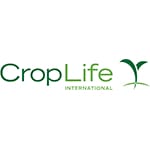Promoting Safe Pesticide Handling
HIGHLIGHTS
- The use of plant protection products without appropriate safety precautions can impose serious risks to farmers’ health and wellbeing.
- We partnered with pesticide companies to gather field insights from farmers and other stakeholders to identify key behavioral barriers in farmers’ usage of safety items.
- Our interventions increased the purchase of nitrile gloves and the use of nitrile gloves, long-sleeve shirts, and trousers during pesticide handling.
The Challenge
The use of plant protection products without appropriate safety precautions can pose serious risks to farmers’ health and wellbeing. Although strongly recommended, personal protective equipment (PPE) is not widely adopted among smallholder farmers in India. While many stakeholders advocate for usage of a full water-repellent suit, hat, gloves, goggles, and mask, we worked with CropLife’s Operator Exposure Team to identify a more realistic recommendation for minimum PPE.
This redefined PPE set consisted of a long-sleeve shirt, long trousers, nitrile gloves, and tall boots. We then worked with two agrochemical companies in India to identify the behavioral barriers to uptake and usage of PPE among smallholder farmers.
Our Approach
We developed two behavioral interventions that were piloted as a package in two Indian states. The first intervention was a behavioral messaging campaign implemented over 14 weeks. Each week, two messages were sent through a farmer WhatsApp group. The messages—sent in the local language of the pilot locations—addressed various pesticide safety topics and promoted PPE usage.
The second behavioral intervention offered a time-limited coupon providing a discount on nitrile gloves. The discount amount was higher for the first several weeks of the intervention to draw attention to the incentive and encourage purchase.
Results
We evaluated the operational feasibility and impact of the interventions using a pre-post intervention design. During the pilot implementation, both the purchase and the usage of nitrile gloves increased in both regions. The usage of full-sleeve shirts and trousers also increased. However, this latter increase may be attributed to seasonal changes, as the endline survey was conducted during a period of colder weather. Operationally, we found that the engagement of farmers with the WhatsApp group messaging was low, implying that the observed outcomes were primarily driven by the coupon incentive and any promotional activities undertaken by pesticide retailers who sold nitrile gloves.
Takeaway
These findings indicate promise in utilizing financial incentives to increase the adoption of safety measures among farmers, ultimately helping to preserve their health, wellbeing, and livelihoods.
Interested in learning more about this work applying behavioral science to a crucial social problem? Reach out to us at info@ideas42.org or tweet at @ideas42 to join the conversation.
Partners










